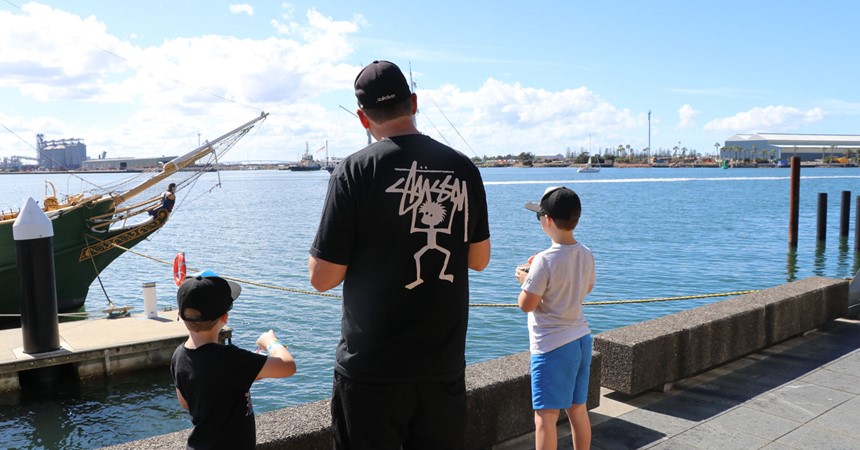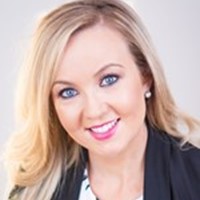This message was delivered by Pope Francis at the 2015 Festival of Families in Philadelphia. The words and sentiment have long stuck in my mind and occurred to me again recently when I met an inspiring foster family at a course provided by CatholicCare Social Services Hunter-Manning.
The course, titled Shared Lives, was designed to provide prospective foster carers with an understanding of how to support children who have experienced trauma.
In attendance was a father by the name of David and with National Families Week just around the corner (15-21 May) I would like to share with you his family’s unique story.
In 2009 David and his former partner Stacey,* had a child together named Paul.* David and Stacey remained in a relationship for around a year, before separating. Stacey became the primary carer of Paul, and went on to meet a new partner, James*, with whom she had a second child named Ace.*
Between the ages of one and four, Paul would enjoy regular visits with David. In this time David married a new partner and became a step-father to five children. Unfortunately the combined pressures of a blended family and co-parenting with a former partner led to David suffering mental health challenges. David came to believe he had ‘little to offer’ his son, and from the age of five to seven Paul had limited access to David. During this period David’s marriage also broke down.
In 2015 David realised he needed to make changes. He began to prioritise his mental and physical health and secured stable housing and employment.
By 2017 David was mentally and physically healthy and had regained structure in his life. He then received a call from the Department of Family and Community Services (FACS) notifying him Paul and Ace had been placed in foster care due to concerns for their wellbeing. David described the news as ‘shocking’ and ‘life-changing’.
After meeting with FACS representatives David was asked if he was open to resuming care of Paul, his biological son.
“I told them ‘in all honesty I’d love it, but I want to ensure I can provide everything for him.’ No one is perfect, but I wanted to be certain I was in a position to provide Paul with the life he deserved, both mentally and physically,” David said.
To assist David and Paul with the transition, David visited Paul regularly while he remained in foster care. He also took responsibility for past misgivings and apologised to Paul for not being more present in his life over the years.
After witnessing his interactions with Paul, and Paul’s brother Ace, FACS asked David if he would consider taking responsibility for the care of Ace as well.
David immediately realised the gravity of the decision laid before him.
“Any reservations I had were not about raising the two boys, but rather my ability to love them equally. I knew that if I was to care for them both, it was important to show them the same level of affection, caring and understanding regardless of my prior bond with Paul and their distinctly different personalities,” David said.
David said it became clear to both him and FACS that it was in the best interest of the boys to remain together and that with the right supports in place, he would be capable of caring for them both and loving them equally.
“I wanted the boys to be able to retain their bond. They’ve been through a lot, but they’ve always had each other. To my mind separating them, and having Ace remain in foster care without family, would have limited the amount of time the boys got to see each other and impacted them both negatively. I could only see the benefits of them staying together, and it was within my capacity to do something about it, so I become a foster carer,” he said.
To become a foster carer David had to complete training courses and mandatory assessments. At his own request he was provided with additional parenting sessions to help him prepare for the journey ahead.
In November 2018 Paul and Ace transitioned into David’s care fulltime.
“It’s been a whirlwind, but it’s been fantastic. I wouldn’t change anything, I love having both the boys in my life,” David said.
David is supportive of Paul and Ace continuing their relationship with their mother Stacey, and Ace’s father James, by facilitating regular catch-ups.
“Families can be complex, but for me, it’s about being there for each other in the good times, and in the bad times. The boy’s wellbeing is the most important thing to me, so while ever they are happy and safe I would love for them to spend more time with their parents - it’s only going to benefit them,” David said.
“What I have with both the boys is special, and I’ll always want them to stay with me until they’re ready to leave on their own accord. Regardless of the biology, they’re both my sons. Ace is just lucky to have two dads who love him, and I tell him that all the time.”
After spending time with David, Paul and Ace, I was touched by David’s unwavering love for his boys.
As Pope Francis says, ‘no family is perfect’. But, if we measure a family’s success by its ability to flourish in the face of adversity, grow in love, learn from mistakes and embrace opportunities, then, despite being unconventional, this family should be held up as an example to us all.
To conclude our conversation, David provided a salient message.
“If anyone is considering becoming a foster carer, I would highly recommend it, particularly if you can take-on siblings. Having Ace in my life has changed it for the better and has been so important for the boys. Regardless of what they’ve been through, they’ve still got each other.”























































































